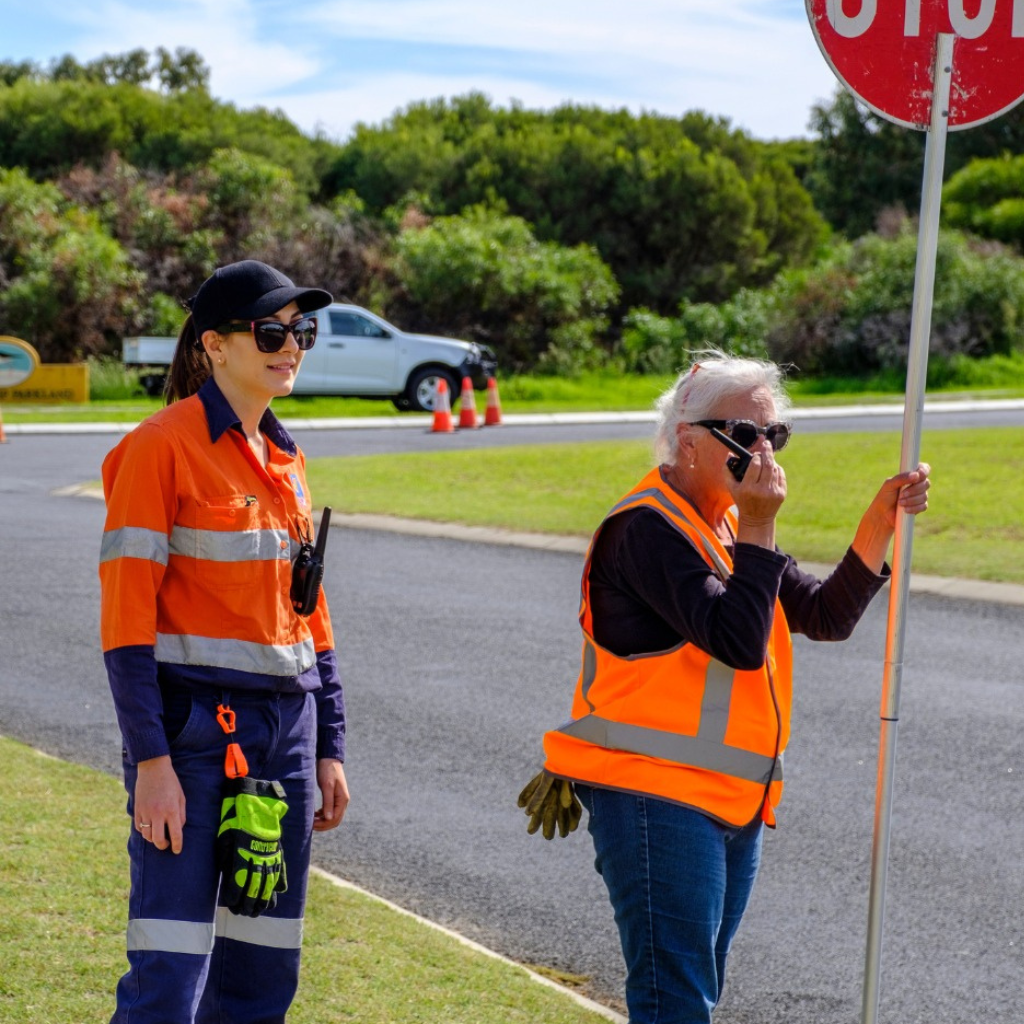Organised events that impact the safe and efficient use of WA roads, can create potential hazards and delays that can give rise to injury or damage resulting in loss, litigation or prosecution if reasonable care is not taken by event organisers to protect all road users and those involved in the events.
Engaging traffic management for events can become a costly exercise, for those not-for-profit groups and volunteers that are involved with the event.
We wanted to share some helpful information on Event Traffic Control training in WA, PLUS let you in on how you can save 50% off your next event traffic control training course.
Event Traffic Controller
Main Roads WA has in place several accreditation levels for personnel responsible for managing works on roads. There are similarities between traffic management for works on roads and traffic management for events.
Persons accredited to undertake the traffic management tasks specified in the ‘Traffic Management for Works on Roads Code of Practice’ can be considered suitably qualified to manage traffic at events, in most circumstances.
However, for the majority of events, are facilitated by volunteers and non-for-profit groups.
It is recognised that for many events the level of traffic volumes and vehicle speeds that need to be controlled, and the complexity of associated traffic management arrangements, are often less than the levels encountered for works on roads, and hence the level of training required to manage traffic in a safe and efficient manner at an event can be less rigorous than the level of training required for worksite traffic management. Therefore, Main Roads has developed a separate Event Traffic Controller training course.
A person with an Event Traffic Controller accreditation will be restricted to implementing non-complex traffic management arrangements under the supervision of a person that holds Main Roads, ‘Basic ‘or ‘Worksite’ Traffic Management accreditation, as well as manually controlling traffic with a ‘Stop/Slow’ bat within the scope of the applicable Road Traffic Code regulations, on roads in a low-speed traffic environment of 60 km/h or less.
Please note if you are required to implement signs and devices at an event location that has higher speeds more than 60km/h zone, you will be required to undertake BWTM or BWTM/TC training.
Event Marshals
As per the Main Roads WA Code of Practice for Event Traffic Management, it states:
The role of event marshals is primarily to guide and assist those participating in, and/or attending, events. Event marshals have no legal authority for the direct control of vehicle and pedestrian movements apart from situations where such movements take place within a portion of road that has been closed to general traffic movements under the applicable statutes or regulations, e.g., prohibiting pedestrians crossing the road during a race event, escorting official vehicles through a crowd, etc.
However, where roads are not subject to closure, event marshals can perform such roles as warning competing cyclists of likely conflicts with approaching traffic (and vice versa), offering guidance to pedestrians about safe crossing points, assisting motorists to locate car parking facilities, etc.
Event marshals shall operate only under the direction of the event organiser or a Police officer who shall provide sufficient instruction to the event marshal so that traffic and pedestrian control and guidance is always conducted safely.
Funding Available for Not for Profits
Main Roads WA provide funding for not-for-profit groups who can access a subsidy of up to 50% off training course costs. AusQ Training must apply for this funding on your behalf at least 30 days prior to the course commencing. Eligibility and funding are subject to approval by Main Roads WA.
Need Event Traffic Management Training?
Let us assist, and check your eligibility to save 50% off event traffic control training. This course is available for group bookings only, therefore public training dates will not be displayed on our Training Calendar.
Please contact our office with your training needs including the quantity of participants, preferred location and any specific requirements – a written quote will be provided based on the specific training requirements.


